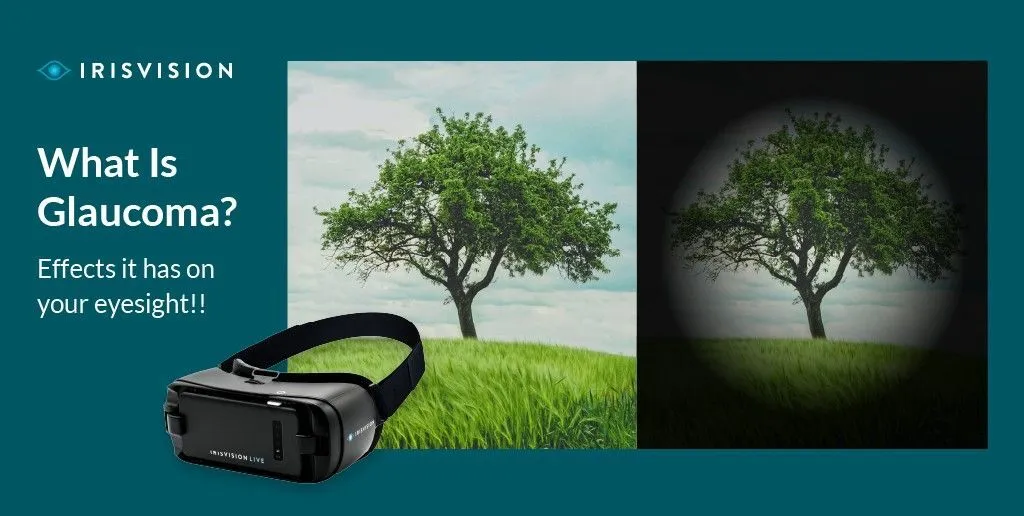
#LIVE2.0 #Review
Low vision or reduced vision commonly known as vision impairment – is a stage where vision cannot be further improved by spectacles or contact lenses. Several eye conditions or low vision diseases may be the cause of vision impairment however Glaucoma is the second leading cause of blindness globally.
Glaucoma can be defined as an eye condition that damages one of the most significant areas in the eye: the optic nerve. It is the result of the build-up pressure (intraocular pressure) in the eye that causes the optic nerve severe and in most cases irreversible damage. The optic nerve is responsible to send images to your brain and if severely damaged or the damage worsens, can be the cause of blindness or vision loss permanently.
Most cases of glaucoma have reported little or no early symptoms or pain which makes it imperative to get a regular eye check-up from an eye doctor/specialist. The importance of getting regular checkups is the possibility of an early diagnosis and treatment which can help lower the eye pressure preventing you from long-term vision loss.
An estimate of 3 million people in the U.S are estimated to have glaucoma as reported by the Glaucoma Research Foundation.
Though there may be many causes associated with glaucoma, experts expressed their failure in identifying what blocks the channels responsible for carrying the fluid inside the eye. Others have also categorized it as a genetic disorder or a genetic disease. More common causes include chemical injury to the eye, blocked blood vessels inside the eye, inflammatory conditions, and eye infection.
Adults over 40 are much more prone to be diagnosed with low vision diseases like glaucoma, in comparison to young adults, children, and infants. People with a family history of eye conditions such as glaucoma are subject to the risk of passing it down the family tree in the form of genetic disorders. Diabetic patients, individuals taking steroid medications such as prednisone, are likely to be diagnosed with glaucoma. Other causes may include injury to the eye/eyes, high blood pressure, heart disease, etc.
Glaucoma is also one of the root causes of central visual field defects, also referred to as “tunnel vision.” Patients diagnosed with glaucoma are likely to face impaired sensitivity to contrast or problems with glare, issues adapting to the dark, ability to see in low light, and even read.
There are other dire effects of glaucoma other than loss of vision or low vision. Damage to the optic nerve can severely affect the peripheral vision resulting in tunnel vision (shrinking field of view). Other effects may include patchy blind spots on the sides (peripheral), blurred vision, severe headache, eye pain, nausea, and vomiting, etc.
Several low vision aids and low vision solutions are available in the market e.g. optical and non-optical devices, that cater to individuals suffering from different eye conditions e.g. Glaucoma, Macular Degeneration, etc. The purpose of these devices is to facilitate the vision impaired and low vision individuals to carry out routine tasks seamlessly, making use of the several features available in these devices such as magnification, contrast, reading mode, etc.
Are there devices that contain a wide array of useful features like magnification, portability needed to carry out daily tasks, each requiring a special feature? Unfortunately, there aren’t many options. The properties and features of each of the low vision device need to be aligned with eye condition as well as the limitation it causes e.g. magnification devices may not be beneficial for specific glaucoma patients who do not yet have central vision loss, common in very advanced glaucoma.
Easy to charge, wireless charging enablement, and free software updates are just some of the few reasons why IrisVision beats all other low vision aids. To avail a 30-day free trial before buying the device, fill the form, and receive comprehensive training on how to make the most of this device.
Keeping a regular check on your vision and eye health is just as important as visiting the dental clinic to ensure good oral hygiene. The significant increase in the usage of digital mediums and exposure to screens through phones, laptops, desktop computers, and televisions demand an even more comprehensive eye care routine as well as health and safety measures. Regular eye checkups and eye exams are highly advisable, as early diagnosis prevents the damage from causing serious, irreversible damage that later may not be treatable.
Seeking help from a specialist or professional council is always a smart choice, as it equips you with risk mitigation strategies and information and that has already been tested and validated. Individuals with low vision can also benefit from different devices (mentioned earlier) such as low vision aids for glaucoma patients, after consulting their respective eye specialists enabling them to perform their daily tasks and reclaiming their independence.
Support
See and Connect Today!
IrisVision Global, Inc.
5994 W. Las Positas Blvd, Suite 101
Pleasanton, CA 94588
Email: [email protected]
Support: +1 855 207 6665
Support
See and Connect Today!
IrisVision Global, Inc.
5994 W. Las Positas Blvd, Suite 101
Pleasanton, CA 94588
USA Email: [email protected]
Support: +1 855 207 6665
Support
See and Connect Today!
IrisVision Global, Inc.
5994 W. Las Positas Blvd, Suite 101
Pleasanton, CA 94588
Email: [email protected]
Support: +1 855 207 6665